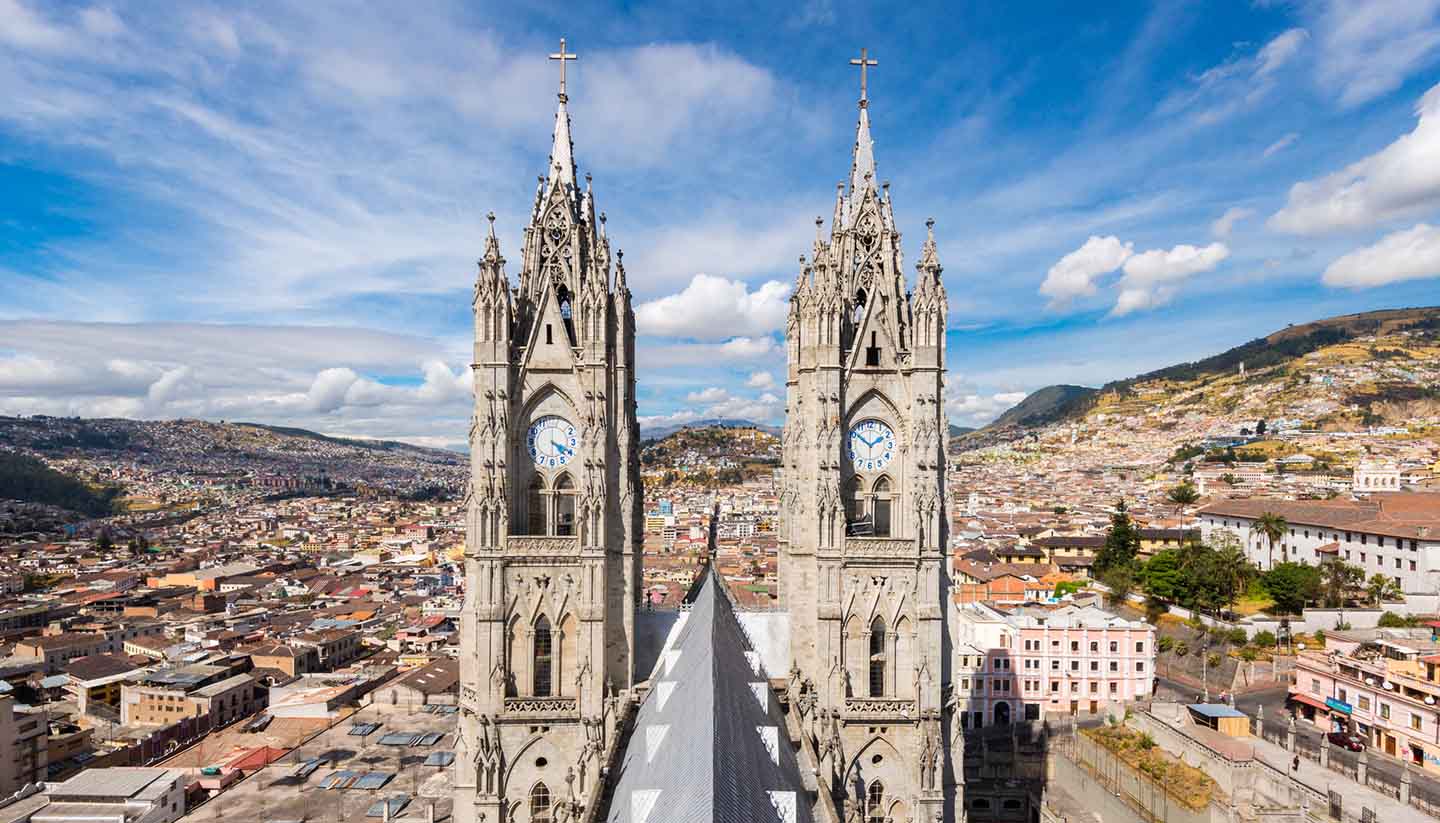Quito History
Although the history of Quito is often dated from the period of Spanish colonisation in the 16th century, it takes its name from the Quitus, a pre-Inca tribe that inhabited the valley centuries before.
By the time the Spanish arrived, the Incas had converted Quito into a major city, but the war-general Rumiñahu razed it to the ground rather than see its treasures fall into the hands of the Spanish conquerors. The Ecuadorean capital was founded atop its ruins in 1534.
Despite the Incas’ relatively brief time in Ecuador – less than a century – they contributed much, including a road connecting Cusco to Quito. The Spanish capitalised on this infrastructure, building countless colonial masterpieces in the new imperial outpost, notably the church La Compañía, which is thought to be the richest in Latin America with its golden altar and other splendours. Buildings sprang up that combined indigenous and Spanish influences of the so-called Escuela Quiteña (Quito School of Art).
Life for indigenous people and meztisos (mixed race) was very hard under imperial rule, and revolts were common. Tensions erupted into a liberation attempt in 1809, which saw a government established in Quito for nearly a month, before loyalist Spanish forces put down the rebellion.
Then the great liberator, Simón Bolívar, set Quito free in 1822, and forged Gran Colombia, which included Ecuador, Venezuela and Colombia. By 1830, his dream of a united South America had collapsed, and Ecuador became independent.
A near-constant struggle between left and right ensued in the following decades, with the conservative dictator García Moreno assassinated in 1875 with a machete outside the presidential palace in Quito. Next, the leader of the so-called Liberal Revolution, President Eloy Alfaro, was killed by conservatives in the capital 1912.
The rest of the 20th century saw numerous civilian governments replaced by military rule leading from the capital. The city was one of the first named a UNESCO World Heritage site in 1978, protecting its splendid colonial architecture. In recent years it has grown into a modern metropolis and will see the introduction of its first metro line before the end of the decade.
Did you know?
• Quito is historically the centre of power for the church-backed conservatives, while rival city Guayaquil is the stronghold of liberals and socialists.
• When the government announced that it was adopting the dollar in place of its national currency in 2000, mass protests completely shut down Quito.
• Water boils at 90° in Quito due to the altitude.


